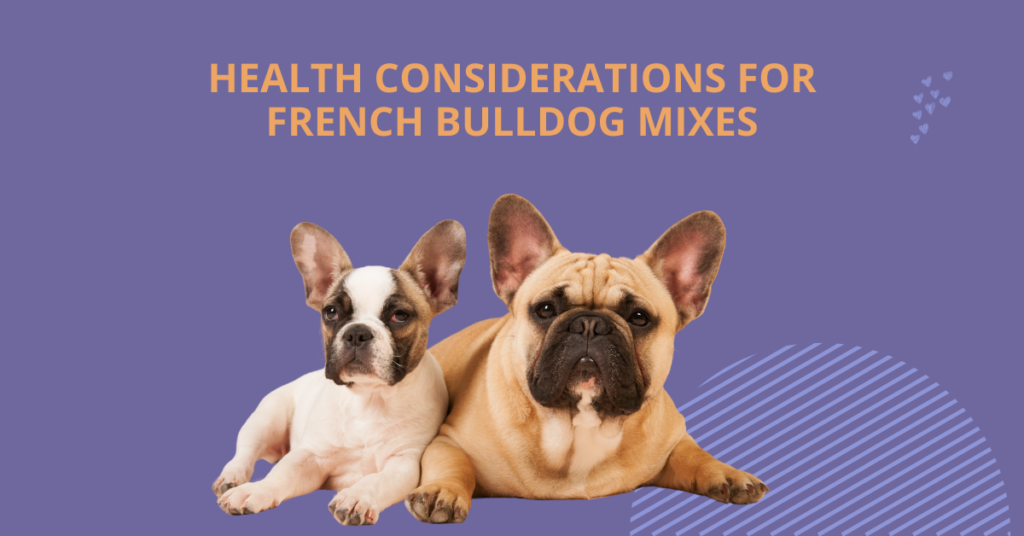French Bulldogs have captured the hearts of dog lovers across America, ranking as the second most popular dog breed in the United States according to the American Kennel Club. With their distinctive bat-like ears, compact muscular bodies, and charming personalities, it’s no wonder these adorable companions have become such beloved pets in homes nationwide.

In recent years, a fascinating trend has emerged in the canine world: the rise of designer dogs. These intentional crossbreeds combine the French Bulldog’s desirable traits with complementary characteristics from other purebred dogs. Unlike accidental mixed breeds, these designer Frenchie mixes are purposefully developed to enhance specific qualities while potentially minimizing health concerns.
Why Are French Bulldogs Popular for Mixing?
French Bulldogs are commonly mixed with other breeds for several compelling reasons:
- Health improvements – Crossbreeding can help reduce some of the respiratory challenges associated with the Frenchie’s brachycephalic (flat-faced) structure
- Size variations – Creating smaller or larger versions that maintain the beloved Frenchie personality
- Coat diversity – Introducing different coat types, including hypoallergenic options for allergy sufferers
- Temperament adjustments – Balancing the Frenchie’s sometimes stubborn nature with traits from more easily trainable breeds
These thoughtfully created crossbreeds offer prospective dog owners the charming characteristics of French Bulldogs while addressing some of their inherent challenges.
In this comprehensive guide, we’ll explore the 15 most popular French Bulldog mixes available today. You’ll discover each mix’s unique physical traits, temperament, health considerations, and ideal living situations. Whether you’re considering adding a Frenchie mix to your family or simply curious about these delightful hybrids, this article will provide everything you need to understand what French Bulldogs are mixed with and which combination might be perfect for your lifestyle.
Understanding French Bulldogs
Before diving into French Bulldog mixes, it’s important to understand the foundation breed itself. French Bulldogs have a fascinating history and distinctive characteristics that make them unique in the canine world.
Origin and History
Despite their name, French Bulldogs actually originated in England during the early 1800s. They were initially bred as miniature versions of traditional English Bulldogs. Their journey to France began during the Industrial Revolution when:
- Lace workers from Nottingham, England migrated to France, bringing their small bulldogs with them
- These English toy bulldogs became popular among French lace workers, particularly in Normandy
- Local French terrier breeds were crossed with these small bulldogs, resulting in the distinctive bat-eared variety we recognize today
The breed’s popularity quickly spread beyond the working class to French society at large. By the late 19th century, these dogs had become fashionable companions among Parisian café society and creative circles. The American Kennel Club officially recognized the French Bulldog as a distinct breed in 1898, cementing their status as a beloved companion dog worldwide.
Physical Characteristics
French Bulldogs are immediately recognizable by their distinctive appearance:
- Bat ears – Large, erect ears with rounded tips that stand upright
- Brachycephalic face – Short, pushed-in muzzle with pronounced wrinkles
- Compact body – Muscular, solid frame with a smooth coat
- Square head – Flat between the ears with a rounded forehead
Size-wise, French Bulldogs are considered a small to medium breed:
| Characteristic | Measurement |
| Height | 11-12 inches at shoulder |
| Weight | Males: 20-28 pounds<br>Females: 16-24 pounds |
| Body Structure | Compact, low-set, muscular |
Their coat is short, smooth, and fine with moderate shedding. French Bulldogs come in various colors including brindle, fawn, cream, and white, often with distinctive markings and patterns.
Temperament and Personality
French Bulldogs are beloved for their charming personalities and make excellent companions for various lifestyles. Their key personality traits include:
- Affectionate nature – They form strong bonds with their owners and enjoy cuddles
- Playful disposition – They maintain puppy-like enthusiasm well into adulthood
- Social temperament – Generally friendly with strangers, children, and other pets
While French Bulldogs are intelligent, they can also display independent thinking and occasional stubbornness. They respond best to positive reinforcement training methods that keep sessions engaging and rewarding. Their moderate energy levels make them suitable for apartment living, though they still require daily exercise and mental stimulation.
These endearing traits explain why French Bulldogs have become such popular companions—and why their mixed offspring often inherit these beloved characteristics.
Why Are French Bulldogs Mixed With Other Breeds?

While French Bulldogs are adored for their distinctive appearance and charming personalities, intentional crossbreeding with other dog breeds serves several important purposes. Let’s explore the key reasons behind the growing popularity of French Bulldog mixes.
Health Considerations
French Bulldogs, like other brachycephalic (flat-faced) breeds, can experience significant health challenges related to their physical structure:
- Respiratory issues – Their shortened airways can lead to breathing difficulties, snoring, exercise intolerance, and heat sensitivity
- Spinal problems – Their compact body structure can predispose them to intervertebral disc disease
- Reproductive complications – Many French Bulldogs require artificial insemination and cesarean sections for breeding
By crossbreeding French Bulldogs with other breeds, breeders attempt to introduce hybrid vigor (also called heterosis) – the biological phenomenon where crossbred offspring show improved physical qualities compared to their purebred parents. This genetic diversity can potentially:
- Elongate the muzzle for improved breathing
- Reduce the likelihood of inherited diseases common in French Bulldogs
- Create a more robust skeletal structure
- Extend lifespan and improve overall quality of life
Appearance and Size Variations
French Bulldog mixes offer aesthetic variations while maintaining many of the beloved Frenchie features:
- Size flexibility – Pure French Bulldogs typically range from 16-28 pounds, but mixes can be smaller (when crossed with breeds like Chihuahuas) or larger (when mixed with Labradors or Rottweilers)
- Coat diversity – Introducing longer, curlier, or wire-haired coats while keeping signature Frenchie features
- Unique combinations – Creating distinctive appearances that blend the most appealing characteristics of both parent breeds
These appearance variations allow prospective owners to find a dog with the Frenchie charm they love in a package that suits their aesthetic preferences.
Temperament Adjustments
While French Bulldogs have wonderful personalities, selective crossbreeding can enhance certain behavioral traits:
- Trainability – Mixing with highly trainable breeds like Poodles or Labradors can reduce the Frenchie’s natural stubborn streak
- Energy levels – Creating mixes with either higher energy (for active families) or lower energy (for more sedentary households)
- Sociability – Enhancing or moderating social tendencies depending on the complementary breed
These temperament adjustments allow French Bulldog mixes to fit seamlessly into various lifestyle needs while maintaining the affectionate nature that makes Frenchies so beloved.
The 15 Most Popular French Bulldog Mixes
French Bulldog mixes combine the beloved characteristics of Frenchies with complementary traits from other breeds. Let’s explore the most popular crossbreeds that have captured the hearts of dog lovers everywhere.
Frenchton (French Bulldog + Boston Terrier)
The Frenchton represents one of the most popular and successful French Bulldog mixes, combining two breeds with similar physical characteristics but complementary temperaments.
Physical characteristics:
- Height: 11-13 inches at the shoulder
- Weight: 15-28 pounds
- Compact, muscular build
- Shorter muzzle than a purebred Boston Terrier, though typically less flat than a Frenchie
- Prominent bat-like ears, though sometimes smaller than a purebred Frenchie’s
- Coat is short, smooth and comes in various patterns including brindle, black and white, or solid colors
Temperament and personality:
- Highly sociable and people-oriented
- Energetic and playful without being hyperactive
- Less stubborn than purebred French Bulldogs
- Excellent with children and other pets
- Adaptable to various living situations from apartments to larger homes
Health considerations:
- Generally healthier respiratory system than purebred French Bulldogs
- Still susceptible to some brachycephalic issues, though usually less severe
- May experience eye problems and skin allergies
- Average lifespan of 12-14 years with proper care
Frug (French Bulldog + Pug)
The Frug combines two brachycephalic breeds known for their charming personalities and distinctive appearances.
Physical characteristics:
- Height: 10-11 inches at the shoulder
- Weight: 20-24 pounds
- Compact, sturdy body
- Very short muzzle (maintains brachycephalic features)
- May have the Frenchie’s bat ears or the Pug’s rose ears
- Short, smooth coat commonly in fawn, black, or brindle
Temperament and personality:
- Affectionate and devoted companion
- Playful well into adulthood
- Social with strangers though can be protective
- Moderate energy level – enjoys play sessions followed by naps
- Can be stubborn during training but responds well to positive reinforcement
Health considerations:
- Prone to respiratory issues due to both parent breeds being brachycephalic
- Needs monitoring in hot weather
- May experience eye problems and skin fold infections
- Requires weight management to prevent obesity
- Lifespan typically 10-13 years
French Bullador (French Bulldog + Labrador)
The French Bullador creates a medium-sized companion with an excellent blend of the Labrador’s friendly nature and the Frenchie’s compact charm.
Physical characteristics:
- Height: 12-24 inches (significant size variation possible)
- Weight: 30-60 pounds
- Muscular, sturdy build
- Facial features usually include a longer muzzle than a Frenchie
- Ears may be partially erect or floppy
- Short to medium coat that can be moderately water-resistant
Temperament and personality:
- Intelligent and relatively easy to train
- Friendly and outgoing with people and other animals
- More energetic than a purebred Frenchie
- Loyal and protective without being aggressive
- Excellent family dog with good patience for children
Health considerations:
- Improved respiratory function compared to purebred Frenchies
- May inherit joint issues (hip dysplasia) from the Labrador side
- Can be prone to obesity without proper exercise
- Generally improved overall health due to hybrid vigor
- Average lifespan of 11-13 years
Froodle (French Bulldog + Poodle)
The Froodle combines the Frenchie’s companionable nature with the Poodle’s intelligence and potentially hypoallergenic coat.
Physical characteristics:
- Height: 12-18 inches at the shoulder
- Weight: 30-40 pounds
- More proportional facial structure than purebred Frenchies
- Coat can range from slightly wavy to curly
- Reduced shedding compared to French Bulldogs
- Comes in various colors including black, white, cream, and apricot
Hypoallergenic coat benefits:
- Significantly reduced dander compared to French Bulldogs
- Lower shedding makes them suitable for allergy sufferers
- Regular grooming still required to prevent matting
- Coat texture varies by individual, with some being more hypoallergenic than others
Temperament and personality:
- Highly intelligent and responsive to training
- Affectionate and devoted to family members
- More energetic than purebred French Bulldogs
- Excellent problem-solving abilities
- Social with proper early exposure and training
Health considerations:
- Improved respiratory function with longer muzzle
- May inherit skin sensitivities from both parent breeds
- Generally robust health with proper care
- Average lifespan of 11-14 years
Frorkie (French Bulldog + Yorkshire Terrier)
The Frorkie creates a small companion with the Frenchie’s sociability and the Yorkie’s spunky personality.
Physical characteristics:
- Height: 9-11 inches at the shoulder
- Weight: 7-16 pounds
- Compact body with proportionally longer legs than a Frenchie
- Facial features blend both breeds, typically with a slightly longer muzzle
- Coat can range from short to medium length with varying textures
- Colors include combinations of black, tan, white, and brindle patterns
Temperament and lifespan:
- Energetic and playful despite small size
- Affectionate with family but may be reserved with strangers
- Can inherit the Yorkie’s terrier instincts for chasing small animals
- Often forms strong bonds with primary caregivers
- Generally lives 11-13 years with proper care
French Bully (French Bulldog + American Bully)
The French Bully combines the French Bulldog with the robust American Bully for a strong, confident companion.
Physical characteristics:
- Height: 12-15 inches at the shoulder
- Weight: 35-55 pounds
- Substantially muscular build compared to a standard Frenchie
- Broad chest and powerful shoulders
- Maintains some Frenchie facial features but with a slightly longer muzzle
- Short, smooth coat in various colors and patterns
Temperament and personality:
- Confident and stable temperament
- Loyal and protective of family without excessive aggression
- Generally good with children and other pets when properly socialized
- More athletic than purebred French Bulldogs
- Trainable but may show independence
Health considerations:
- Improved breathing compared to purebred Frenchies
- Requires regular exercise despite compact size
- May inherit joint issues from American Bully lineage
- Generally robust health with average lifespan of 11-13 years
French Bull Tzu (French Bulldog + Shih Tzu)
The French Bull Tzu blends the French Bulldog’s charm with the Shih Tzu’s elegant coat and loving disposition.
Physical characteristics:
- Height: 9-11 inches at the shoulder
- Weight: 14-20 pounds
- Compact body with slightly longer proportions than a Frenchie
- Facial features often include the Frenchie’s broader head with a slightly longer muzzle
- Coat can range from short to medium length with varying textures
- May inherit the Shih Tzu’s hypoallergenic coat qualities
Temperament and personality:
- Affectionate companion that thrives on human interaction
- Gentle and patient, making them excellent for families
- Moderately active, enjoying play sessions but not requiring extensive exercise
- Generally friendly with strangers though may be initially reserved
- Responds well to positive training methods
Health considerations:
- Typically has improved respiratory function compared to purebred Frenchies
- May inherit eye issues from both parent breeds
- Regular grooming required to maintain coat health
- Average lifespan of 10-14 years
French Bullhuahua (French Bulldog + Chihuahua)
The French Bullhuahua creates a small, spirited companion with a unique blend of traits from both popular small breeds.
Physical characteristics:
- Height: 8-12 inches at the shoulder
- Weight: 10-20 pounds
- Compact body that may be slightly leaner than a purebred Frenchie
- Head shape varies but often features the Frenchie’s broader skull with a slightly longer muzzle
- Ears may be erect like both parent breeds or slightly folded
- Short coat in various colors including fawn, black, white, or combinations
Temperament and personality:
- Alert and attentive to surroundings
- Deeply devoted to their owners, sometimes to the point of being possessive
- Can inherit the Chihuahua’s more vocal nature
- May show territorial tendencies without proper socialization
- Often bonds closely with one particular family member
Health considerations:
- Generally improved respiratory function
- Dental issues may require attention
- Typically hardy with good longevity
- Average lifespan of 12-14 years
Freagle (French Bulldog + Beagle)
The Freagle combines the French Bulldog’s companionable nature with the Beagle’s scent-driven curiosity.
Physical characteristics:
- Height: 12-15 inches at the shoulder
- Weight: 18-30 pounds
- Athletic build with more proportional body than a Frenchie
- Distinctive floppy ears inherited from the Beagle parent
- Longer muzzle than a purebred French Bulldog
- Short, dense coat typically in tricolor, black and white, or brindle patterns
Temperament and personality:
- Friendly and outgoing with people and other animals
- More scent-driven than purebred French Bulldogs
- Can be vocal with a range of sounds from Frenchie “talking” to Beagle baying
- Energetic and playful, requiring more exercise than standard Frenchies
- Generally good with children and families
Health considerations:
- Improved respiratory system compared to purebred Frenchies
- May inherit ear infection susceptibility from Beagle parentage
- Generally healthy with good hybrid vigor
- Average lifespan of 11-14 years
Additional Popular French Bulldog Mixes
French Bull Heeler (French Bulldog + Blue Heeler)
The French Bull Heeler combines the Frenchie’s affectionate nature with the Blue Heeler’s intelligence and energy, creating a medium-sized, active companion.
- Height: 12-18 inches
- Weight: 30-40 pounds
- Athletic build with strong herding instincts
- More energetic than standard French Bulldogs
- Requires substantial mental and physical stimulation
- Coat typically short and may show Blue Heeler speckled patterns
- Lifespan of 11-14 years
French Catahoula Bulldog (French Bulldog + Catahoula Leopard Dog)
This unique mix combines the French Bulldog with the distinctive Catahoula Leopard Dog for an athletic, visually striking companion.
- Height: 12-18 inches
- Weight: 30-40 pounds
- Often inherits the Catahoula’s merle coat pattern
- More athletic build than purebred Frenchies
- Independent yet loyal temperament
- Requires consistent training and moderate exercise
- Generally healthy with lifespan of 10-14 years
French Bullmatian (French Bulldog + Dalmatian)
The French Bullmatian blends the Frenchie’s charming personality with the Dalmatian’s distinctive spotted coat.
- Height: 12-19 inches
- Weight: 28-45 pounds
- May inherit the classic Dalmatian spotted pattern
- More athletic build than purebred Frenchies
- Alert, active temperament with moderate exercise needs
- Social with proper training and socialization
- Average lifespan of 10-14 years
Frenchweiler (French Bulldog + Rottweiler)
The Frenchweiler creates a medium-sized, muscular dog with the Frenchie’s charm and the Rottweiler’s loyalty and strength.
- Height: 14-22 inches
- Weight: 35-55 pounds
- Powerful, muscular build
- Distinctive black and tan coloration often present
- Loyal and protective temperament
- Requires consistent training and socialization
- Lifespan typically 8-11 years
French Pei (French Bulldog + Shar Pei)
This distinctive mix combines the French Bulldog with the Shar Pei for a companion with unique physical features and a loyal disposition.
- Height: 12-17 inches
- Weight: 30-45 pounds
- May inherit some of the Shar Pei’s wrinkled skin
- Independent yet devoted temperament
- Can be reserved with strangers but loyal to family
- Requires early socialization for best results
- Lifespan of approximately 9-12 years
Each of these French Bulldog mixes offers a unique combination of traits that might be perfect for different owner preferences and lifestyles. When considering any mixed breed, remember that individual puppies can inherit varying characteristics from either parent, making temperament and appearance somewhat unpredictable even within the same litter.
Health Considerations for French Bulldog Mixes

While French Bulldog mixes often benefit from hybrid vigor, potential owners should be aware of health concerns that may affect these crossbreeds. Understanding these issues can help you provide the best care for your French Bulldog mix and ensure they live a long, healthy life.
Common Health Issues
French Bulldog mixes may inherit health predispositions from both parent breeds, though often to a lesser degree than purebreds. Here are the most common health concerns to be aware of:
Brachycephalic syndrome remains a primary concern for many French Bulldog mixes, particularly those crossed with other flat-faced breeds like Pugs or Boston Terriers. This condition involves:
- Narrowed nostrils (stenotic nares) that restrict airflow
- Elongated soft palate that can partially block the airway
- Everted laryngeal saccules that further obstruct breathing
- Hypoplastic trachea (narrowed windpipe)
Even in mixes with improved facial structure, some degree of respiratory compromise may remain, requiring careful monitoring especially during exercise or hot weather.
Joint problems can affect French Bulldog mixes, including:
- Hip dysplasia – abnormal formation of the hip socket
- Patellar luxation – kneecap that moves out of its normal position
- Intervertebral disc disease – especially in mixes with elongated backs
Skin conditions are common in many French Bulldog mixes due to inherited tendencies:
- Allergies – environmental, food, or contact allergies causing itching and discomfort
- Skin fold dermatitis – infection and irritation in facial or body wrinkles
- Hot spots – localized areas of skin inflammation that can develop quickly
Eye problems may include:
- Cherry eye – prolapse of the third eyelid gland
- Entropion – inward-turning eyelids that can scratch the cornea
- Cataracts – clouding of the eye lens, potentially affecting vision
Improving Lifespan and Quality of Life
With proper care, many French Bulldog mixes can live healthier lives than their purebred counterparts. Here are key strategies to maximize your dog’s wellbeing:
Diet and weight management is crucial as excess weight significantly worsens breathing difficulties and joint problems:
- Feed high-quality, appropriately portioned meals
- Limit treats to 10% of daily caloric intake
- Consider special diets for mixes with food sensitivities
- Use slow-feeder bowls to prevent gulping air (which can cause bloat)
Exercise considerations should account for any breathing limitations:
- Provide regular but moderate exercise appropriate to your dog’s capability
- Choose multiple short walks rather than one long session
- Schedule activities during cooler parts of the day
- Watch for signs of respiratory distress (excessive panting, blue-tinged gums)
Regular veterinary care is essential for early detection and management of health issues:
- Schedule twice-yearly checkups
- Keep vaccinations current
- Maintain parasite prevention
- Consider pet insurance to help with potentially costly treatments
Temperature sensitivity awareness is particularly important for brachycephalic mixes:
- Never leave your dog in a car, even with windows cracked
- Provide air conditioning during hot weather
- Limit outdoor time during extreme temperatures
- Consider cooling vests or mats during summer months
By understanding these health considerations and taking proactive steps, you can help your French Bulldog mix live their best possible life.
Caring for Your French Bulldog Mix

Providing proper care for your French Bulldog mix will help ensure they live a happy, healthy life. While specific needs may vary depending on the particular mix, there are general guidelines that apply to most Frenchie crossbreeds.
Nutritional Needs
Feeding your French Bulldog mix an appropriate diet is crucial for their overall health and wellbeing. Their nutritional requirements depend on their size, age, activity level, and specific mix.
High-quality food is essential for your French Bulldog mix:
- Look for foods with real meat as the first ingredient
- Avoid formulas with excessive fillers, artificial preservatives, or by-products
- Consider foods specially formulated for small to medium breeds
- Some mixes may benefit from breed-specific formulas that address common health concerns
Portion control is particularly important as many French Bulldog mixes are prone to obesity:
- Follow feeding guidelines on the package, but adjust based on your dog’s specific needs
- Use a measuring cup rather than estimating portion sizes
- Account for treats in daily caloric intake (limit treats to 10% of daily calories)
- Monitor body condition regularly—you should be able to feel but not see ribs
Feeding schedule recommendations:
| Age | Feeding Frequency |
| 8-12 weeks | 4 meals daily |
| 3-6 months | 3 meals daily |
| 6-12 months | 2 meals daily |
| Adults | 2 smaller meals daily |
Dividing food into multiple meals helps prevent bloat and regulates blood sugar levels, particularly important for smaller French Bulldog mixes.
Exercise Requirements
French Bulldog mixes need regular physical activity, though the amount and intensity depend on their specific mix.
Exercise levels should be tailored to your dog’s individual needs:
- More athletic mixes (like French Bullador or Frenchweiler) require 30-60 minutes of daily exercise
- Smaller mixes (like Frugs or French Bullhuahuas) typically need 20-30 minutes daily
- Focus on moderate, consistent activity rather than intense bursts
Heat sensitivity precautions are essential, especially for mixes that inherit the Frenchie’s brachycephalic traits:
- Exercise during cooler parts of the day (early morning or evening)
- Always bring water on walks
- Watch for signs of overheating: excessive panting, drooling, or lethargy
- Consider cooling vests in warmer weather
Mental stimulation is just as important as physical exercise:
- Provide puzzle toys that dispense treats
- Rotate toys regularly to maintain interest
- Practice short training sessions daily
- Consider nose work or scent games which are less physically demanding
Training and Socialization
French Bulldog mixes are typically intelligent but can inherit a stubborn streak that requires particular training approaches.
Early socialization lays the foundation for a well-adjusted adult dog:
- Expose puppies to various people, animals, sounds, and environments between 3-14 weeks
- Arrange positive interactions with children, other pets, and strangers
- Continue socialization throughout adolescence
Positive reinforcement techniques yield the best results:
- Use high-value treats, praise, and play as rewards
- Clicker training can be particularly effective
- Keep sessions short (5-10 minutes) but frequent
- Focus on one command at a time until mastered
Consistency and patience are key when working with French Bulldog mixes:
- Establish clear rules and boundaries from day one
- Use the same commands and cues consistently
- Remain patient with stubborn behaviors—never use punishment or harsh corrections
- Consider professional training classes for additional guidance and socialization opportunities
With proper nutrition, appropriate exercise, and consistent training, your French Bulldog mix will thrive as a beloved family companion.
Finding Your Perfect French Bulldog Mix
Finding the right French Bulldog mix for your home involves careful consideration of various factors, from where you acquire your dog to how well their traits match your lifestyle. Taking time to research and assess compatibility will help ensure a successful match that brings joy to both you and your new canine companion.
Adoption Considerations
When looking to add a French Bulldog mix to your family, you have several options for finding your new pet. Each path requires different levels of research and vigilance.
Responsible breeders who specialize in French Bulldog mixes should demonstrate:
- Health testing of parent dogs for breed-specific issues
- Clean, spacious living conditions for their dogs
- Limited breeding frequency for female dogs
- Willingness to show you the parents and living environment
- A thorough contract and health guarantee
- Ongoing support after adoption
Watch for these red flags when dealing with breeders:
- Reluctance to show you their facilities
- Multiple litters available simultaneously
- No health testing documentation
- Pressure to buy immediately without asking questions
- Prices significantly lower than average for the mix
Rescue organizations offer another excellent option:
- Breed-specific rescues often have French Bulldog mixes
- General shelters may have these popular mixes
- Adoption fees typically include vaccinations and spaying/neutering
- Adult dogs may already have basic training and known temperaments
Essential questions to ask before adopting include:
- What is known about the dog’s health history?
- Has the dog been temperament tested?
- What are the dog’s energy levels and exercise needs?
- Does the dog have any known behavioral issues?
- What is included in the adoption fee?
Compatibility Assessment
Finding the right match between your lifestyle and a French Bulldog mix’s traits is crucial for a harmonious relationship.
Lifestyle compatibility factors include:
- Activity level – Be honest about how much exercise you can provide
- Work schedule – Some mixes handle alone time better than others
- Living space – Consider whether your home has adequate space
- Climate – Brachycephalic mixes struggle in hot, humid environments
Family considerations should include:
- Children – Some mixes, like Frenchtons, are typically excellent with kids
- Other pets – Consider how a new dog will integrate with existing pets
- Allergies – Froodles or other Poodle mixes may be better for allergy sufferers
Commitment requirements for French Bulldog mixes involve:
- Financial investment – Budget for quality food, preventative care, and potential health issues
- Time commitment – Daily exercise, training, and companionship
- Grooming needs – Some mixes require professional grooming
- Lifespan – Most French Bulldog mixes live 10-15 years, requiring long-term dedication
By carefully considering these factors, you’ll be well-positioned to find a French Bulldog mix that brings joy to your home for many years to come.

